Ayurvedic Solutions for Menopause
To all the women out there, menopause is not disease! It is a natural biological process that marks the end of a woman’s reproductive years. It occurs when the ovaries stop producing eggs, leading to a decrease in the production of estrogen and progesterone, the hormones that regulate menstruation and fertility. Menopause is typically confirmed after a woman has gone 12 consecutive months without a menstrual period.
Society and western culture may frown at it, but many other cultures revere it as a pathway to wisdom, respect and freedom. It is celebrated. While it’s a nature’s doing, it can bring with it a wide range of physical and emotional symptoms. From hot flashes and night sweats to mood swings and insomnia, menopause can be challenging. Modern medicine offers some solutions, but many women are turning to ancient, holistic approaches such as Ayurveda for relief. This natural transition that every woman experiences.
Ayurveda, a 5,000-year-old system of natural healing that originated in India, emphasizes the provides a gentle yet effective approach to managing menopause symptoms by focusing on balancing the body’s natural energies (doshas) and promoting overall wellness. It correlates it to the Sanskrit term “rajonasa”, which means destruction of menses. In this blog post, we’ll explore the Ayurvedic perspective on menopause and delve into natural remedies that can help you manage this transition with ease.
Understanding Menopause in Ayurveda
Diet plays a significant role in balancing the doshas during menopause. Certain foods can aggravate or pacify the symptoms of menopause, and Ayurveda recommends tailoring your diet to your dominant dosha and the symptoms you’re experiencing.
In Ayurveda, every individual is governed by three doshas: Vata, Pitta, and Kapha. These doshas are energies that regulate various bodily functions, and the balance of these energies determines one’s physical, mental, and emotional health. Menopause is seen as a time of natural change when a woman’s body transitions from the Pitta (active) phase of life to the Vata (wisdom) phase. As Vata increases in the body, it can create typical vata disturbances, or also be associated with the other dosas:
– Pure Vata imbalance: Characterized by dryness, anxiety, insomnia, and irregularity in bodily functions.
– Vata associated with Pitta imbalance: Associated with hot flashes, irritability, anger, and inflammation.
– Vata associated with Kapha imbalance: May manifest as weight gain, lethargy, and depression.
Ayurveda aims to support women during this natural transition by pacifying Vata at first. It restores balance to these doshas through diet, lifestyle, herbal remedies, and body therapies. Don’t wait for the discomfort to take measures to support the body through this change. Let’s explore how Ayurvedic principles can help ease menopause symptoms naturally
Ayurvedic Diet for Menopause
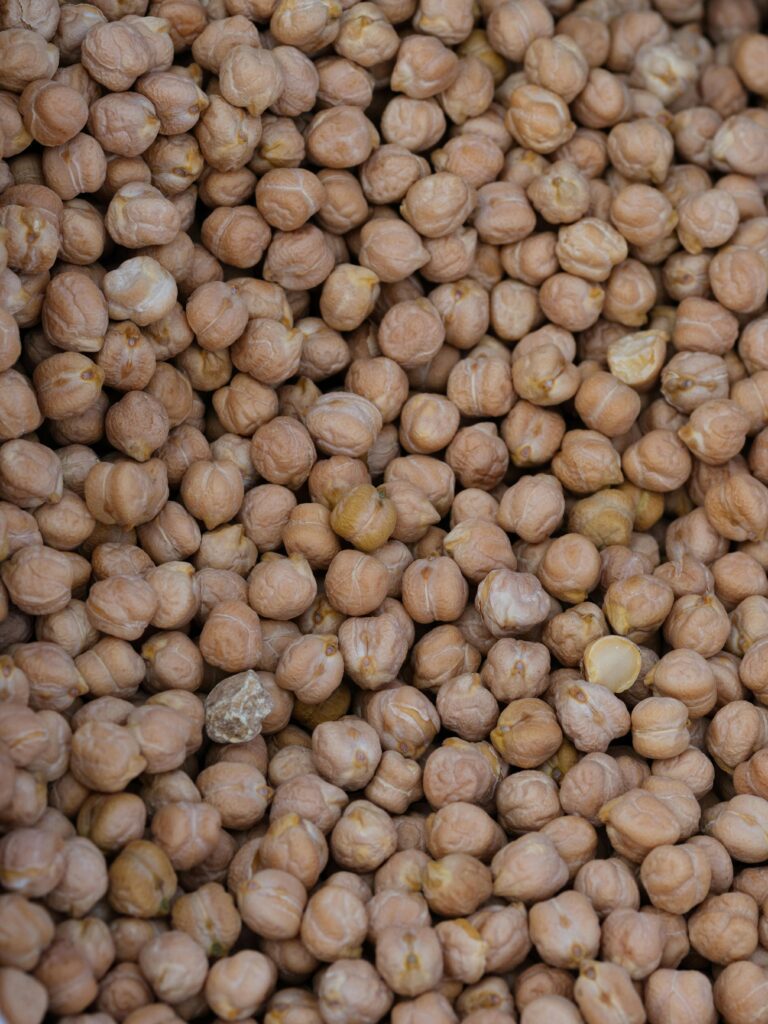
Diet plays a significant role in balancing the doshas during menopause. Certain foods can aggravate or pacify the symptoms of menopause, and Ayurveda recommends tailoring your diet to your dominant dosha and the symptoms you’re experiencing.
General diet recommendations
Focus on eating warm cooked foods through the course of regular timely meals. The best foods to eat during this crucial phase are foods rich in phyto-estrogen:
- Fresh organic cooked vegetables and leafy greens like
- Kale: Blood cleanser, one of the best for cancer-fighting vegetables. Rich in vitamins A, C, riboflavin, niacin, calcium, magnesium, iron, sulfur, sodium, potassium. Phosphorous, and chlorophyll, calcium is easily assimilated.
- Okra
- Green beans
- Peas (helps elimination and good source of calcium)
- Fruits: orange, kiwi, pear, guava, prunes, mulberries, banana
- Nuts: almonds, soaked overnight and peeled, dry figs, dry apricots, dates (good source of calcium), Black raisins, dry peaches, and pumpkin seeds are good source of iron.
- Dairy: milk, buttermilk and cheese.
- Aloe
- Tofu
- Edamame
- Yams
- Asparagus
- Proteins: chickpea is a rajasic food which gives energy!
- Seeds especially flax seeds
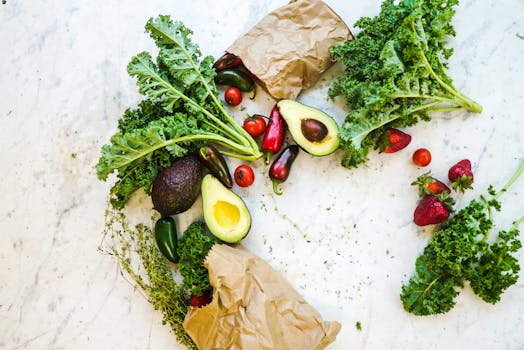
Best supplement recommendations for Menopause
Fenugreek and Vitamin D are both beneficial during perimenopause and menopause for different reasons.
- Fenugreek contains phytoestrogens, which help balance hormone levels, easing symptoms like hot flashes and mood swings. It also supports digestion, reduces bloating, and helps manage blood sugar, all of which can be more challenging during menopause. Additionally, it has anti-inflammatory properties that can soothe joint pain and discomfort.
- Vitamin D is crucial for maintaining bone health, especially as estrogen levels drop during menopause, increasing the risk of osteoporosis. It also boosts mood, supports immune function, and helps regulate sleep patterns—key concerns during this transitional phase. Together, fenugreek and Vitamin D help support overall health and well-being during perimenopause and menopause.
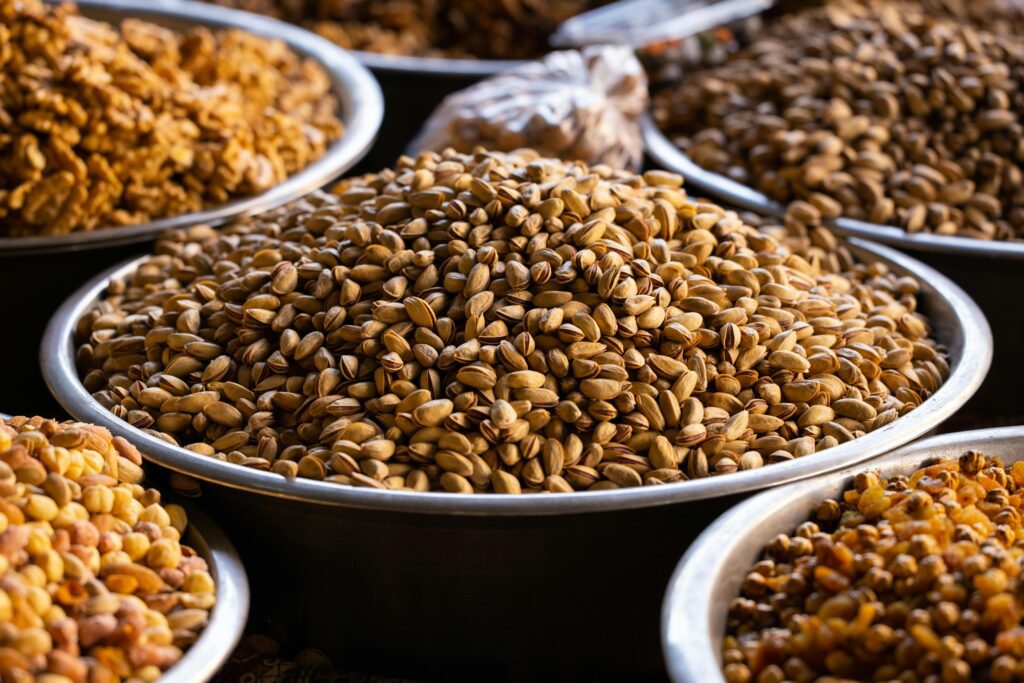
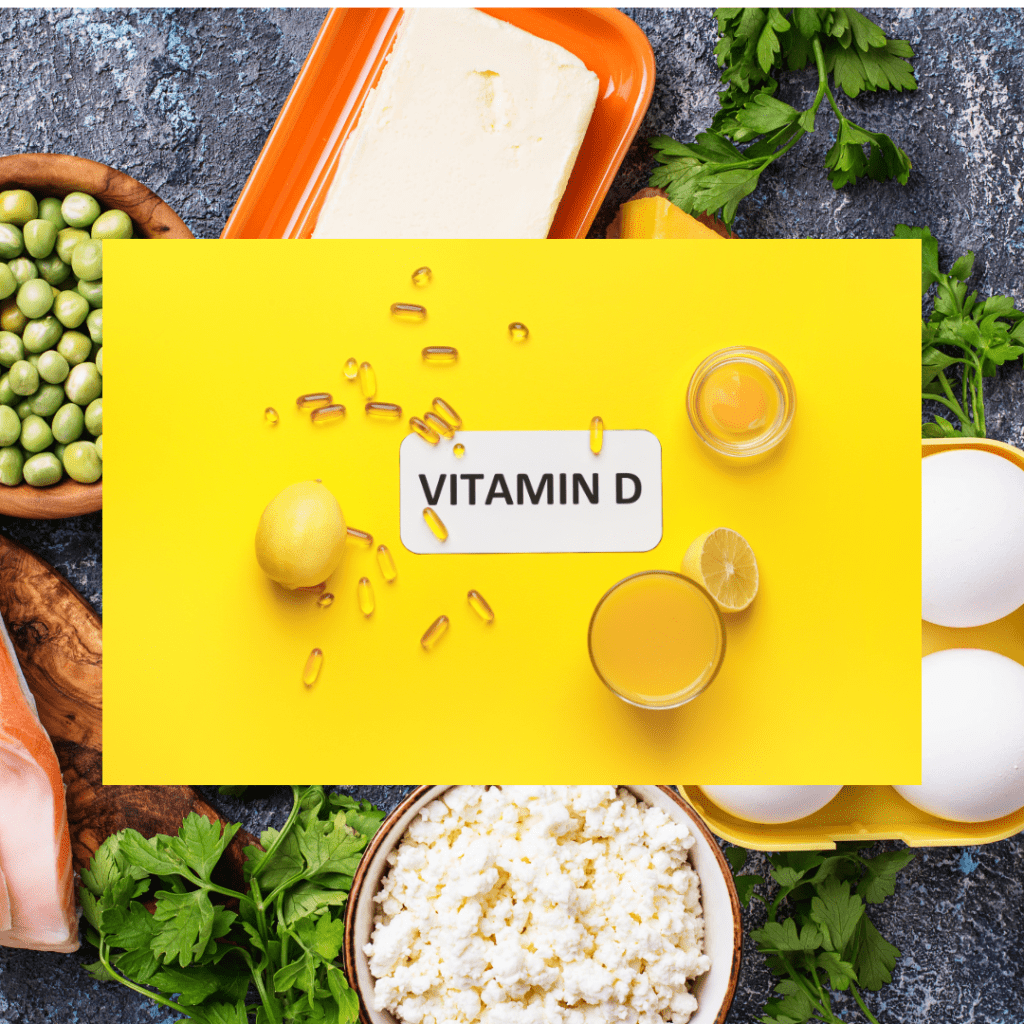
Foods for Vata Imbalance
Vata symptoms are often dry, cold, and light. These qualities can manifest in various ways. Unsteadiness of the mind, forgetfulness, anxiety… So the key is to incorporate warm, grounding, and nourishing foods. Here are some suggestions:
– Favor: Warm soups, stews, whole grains (such as rice and quinoa), root vegetables (sweet potatoes, carrots), and healthy fats like ghee, nuts, and seeds.
– Avoid: Cold, raw, and dry foods like salads, crackers, and popcorn, as well as caffeine and alcohol, which can increase anxiety and dryness.
– Spices: Use warming spices like ginger, cinnamon, and turmeric to enhance digestion and provide warmth.
Foods for Pitta Imbalance
Pitta symptoms are associated with heat. It’s important to focus on cooling, hydrating, and calming foods.
– Favor: Cooling fruits (such as watermelon, cucumber, and pomegranate), cooked leafy greens, coconut oil, and whole grains like barley and oats.
– Avoid: Spicy, oily, and acidic foods like chili peppers, fried foods, and citrus fruits, which can exacerbate hot flashes and irritability.
– Spices: Use cooling spices like coriander, fennel, and mint to balance the internal heat.
Foods for Kapha Imbalance
Kapha symptoms tend to be heavy and sluggish, so the focus should be on light, stimulating, and energizing foods.
– Favor: Light grains (millet, buckwheat), steamed vegetables, legumes, and warming spices.
– Avoid: Heavy, greasy, and sweet foods like dairy, processed snacks, and sugary treats, which can contribute to weight gain and lethargy.
– Spices: Use stimulating spices like black pepper, cayenne, and mustard seed to boost metabolism and energy levels.
Ayurvedic Herbs for Menopause
Ayurvedic herbal remedies are highly effective in managing the symptoms of menopause. Make sure to talk to your ayurvedic practitioner before resorting to ayurvedic herbs. Indeed, misuse of these herbs can exacerbate the symptoms you are experiencing. Below are some powerful herbs traditionally used in Ayurveda to support women through this phase of life:
Ashwagandha
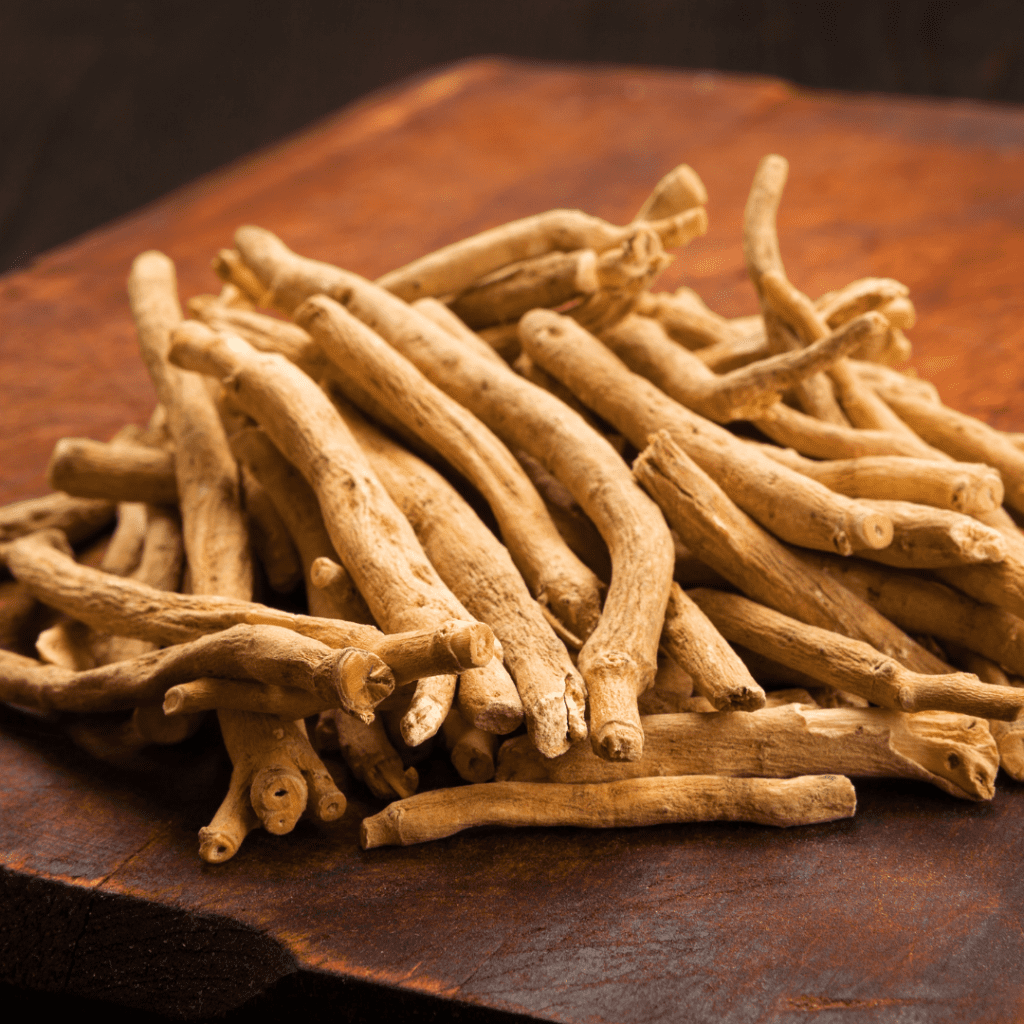
Known as a rejuvenating herb, ashwagandha helps manage stress, anxiety, and insomnia. It also supports hormone balance and boosts energy. Consume ashwagandha in moderation and make sure your digestive system is strong before consuming it.
Shatavari
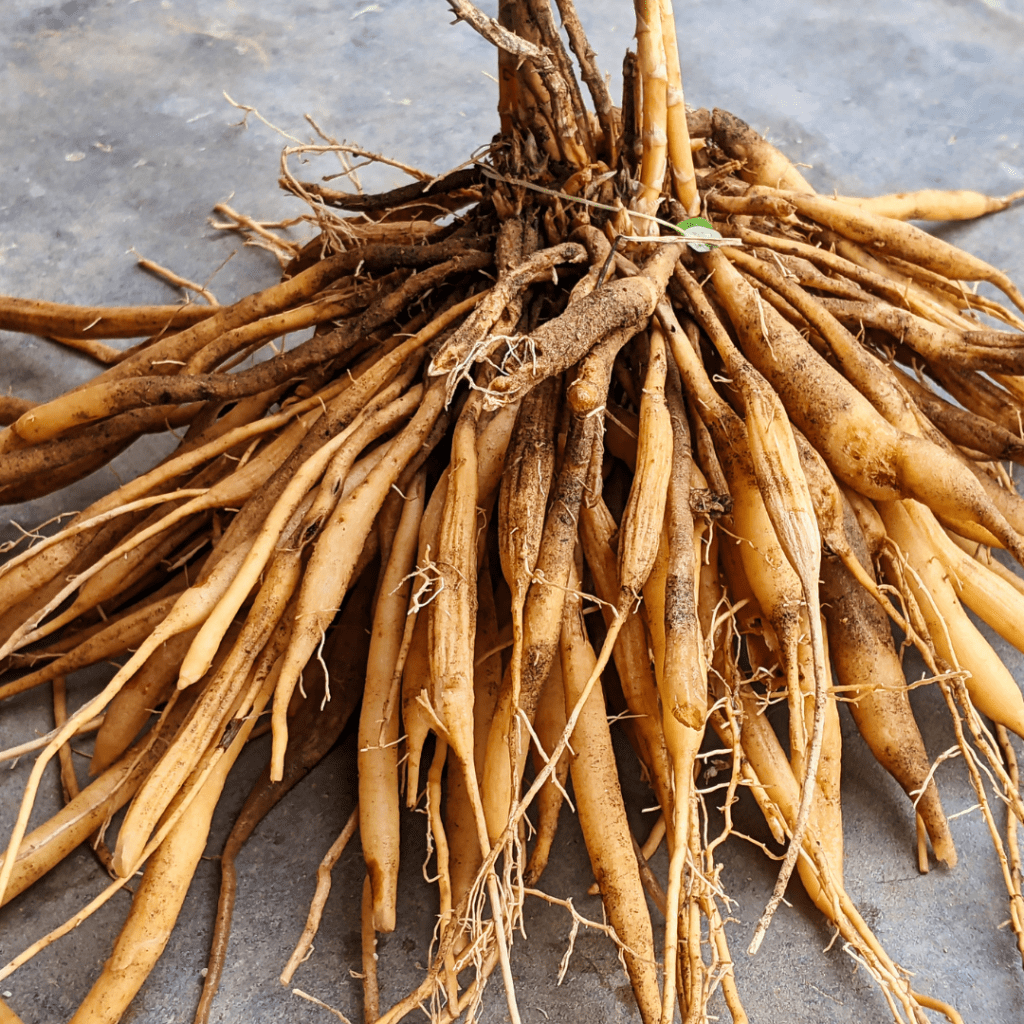
A renowned female tonic in Ayurveda, shatavari nourishes the reproductive system, supports hormonal balance, and reduces symptoms like hot flashes and mood swings.
Triphala
A blend of three fruits, triphala is excellent for digestion and detoxification. It helps manage constipation, which is common during menopause due to Vata imbalance.
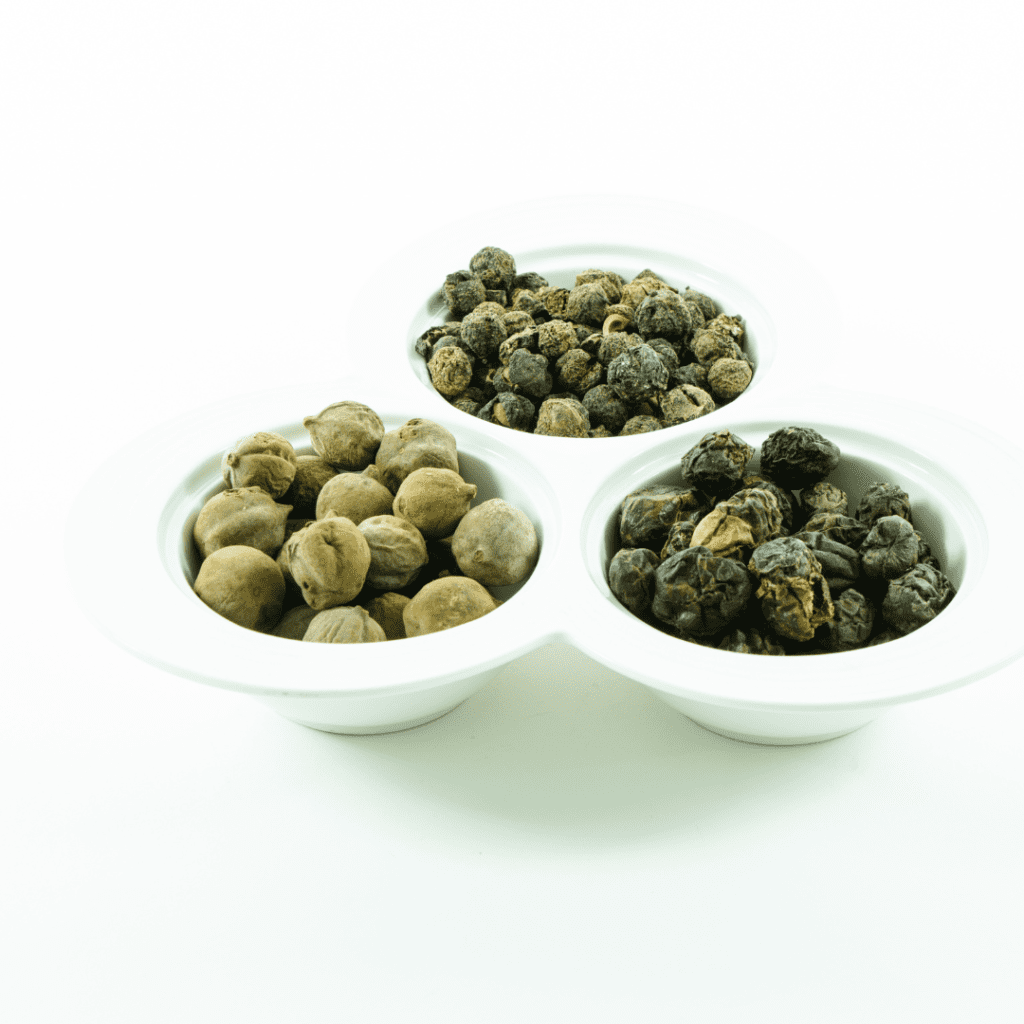
Licorice root
This sweet herb has cooling properties and helps reduce hot flashes and irritability. It also supports adrenal health, which can be depleted during menopause.
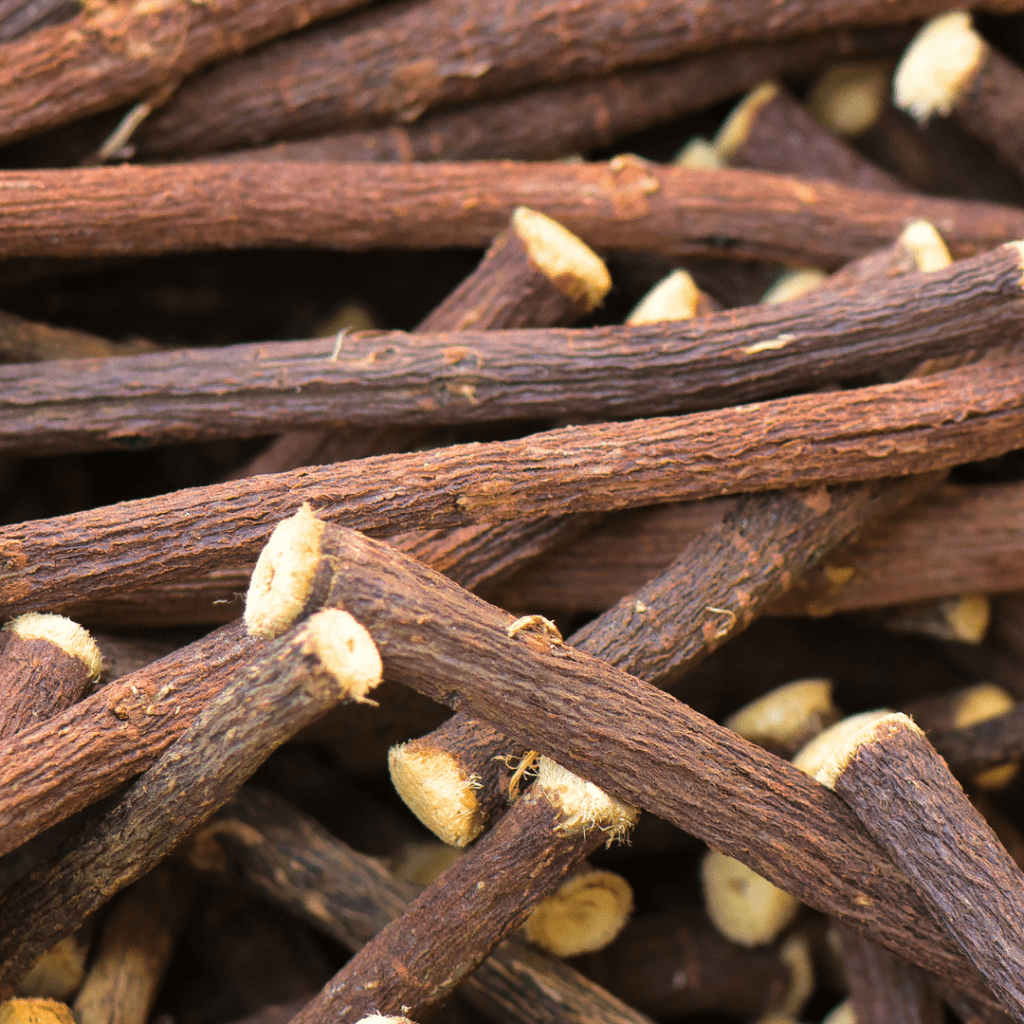
Lifestyle Practices for Menopause
In Ayurveda, lifestyle practices are just as important as diet and herbs in managing menopause. Incorporating daily routines (known as **Dinacharya**) that promote balance and calm is essential for a smoother transition.
- Daily Abhyanga (Self-Massage): Abhyanga, or self-massage with warm sesame oil or coconut oil if you experience hot symptoms, is a deeply nourishing and calming practice for balancing Vata dosha, which often becomes aggravated during menopause. Use warm sesame oil or almond oil and massage it into your skin before bathing. This practice soothes the nervous system, promotes better sleep, and reduces dryness.
- Yoga and Pranayama: Gentle yoga and breathing exercises (Pranayama) are powerful tools for managing menopause symptoms. Practicing poses that focus on grounding, such as child’s pose, forward bends, and seated twists, can help balance Vata and relieve anxiety. Incorporate Pranayama techniques like **Nadi Shodhana (alternate nostril breathing)** and **Sheetali (cooling breath)** to reduce hot flashes and promote emotional calm.
- Meditation and Mindfulness: Menopause can bring emotional upheaval, and meditation is a powerful way to cultivate inner peace and mental clarity. Practicing mindfulness or guided meditation for 10-20 minutes a day can help reduce stress, irritability, and mood swings.
- Sleep Hygiene: Insomnia is a common symptom of menopause. To improve sleep quality, follow Ayurvedic sleep hygiene tips: avoid stimulating activities before bed, drink a cup of warm milk or herbal tea (such as chamomile or ashwagandha), and create a calming evening routine to signal to your body that it’s time to rest.
Ayurvedic Detox for Menopause
In most cases, shamana therapies, or pacification therapies, are preferred over cleansing therapies because it trigger Vata even more. In some cases, though, when the symptoms are extremely uncomfortable, periodic detoxification (known as Panchakarma) is recommended. According to Ayurveda, shodhana therapies help to remove accumulated toxins (ama) from the body, which can worsen menopause symptoms. A gentle detox when recommended by your ayurvedic practitioner can help rejuvenate the body, improve digestion, and restore balance to the doshas.
– Cleansing diet: A light, plant-based diet focused on easily digestible foods like kitchari (a dish made of rice and lentils) can aid detoxification.
– Herbal detox: Triphala and other detoxifying herbs can be used to support elimination and cleanse the digestive tract.
– Oil therapies: Abhyanga (oil massage) and Shirodhara (pouring warm oil on the forehead) are part of Panchakarma treatments that help calm the mind, balance hormones, and improve overall well-being.
Conclusion
Menopause is inevitable, but the symptoms don’t have to overwhelm you. Ayurveda offers a holistic approach to managing menopause, focusing on restoring balance to the body and mind. By following an Ayurvedic diet, incorporating specific herbs, adopting healthy lifestyle practices, and considering detox therapies, you can navigate this transition with greater ease and vitality.
As always, it’s essential to consult with a qualified Ayurvedic practitioner to tailor these recommendations to your unique constitution and needs. Embrace this phase of life as a time of renewal, and let Ayurveda guide you through the journey of menopause with grace and balance.